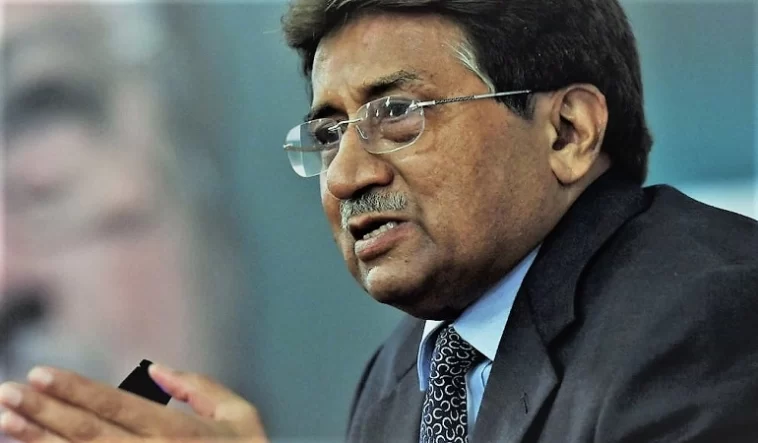On Sunday 05-02-2023 General Pervez Musharraf passed away at Dubai American Hospital after a prolonged illness, according to the Pakistani military.
Senior military authorities expressed their “heartfelt condolences” on General Pervez Musharraf’s tragic demise.
The statement expressed: the sincere condolences of ISPR Services Chiefs, CJCSC, and Chief of Army Staff on the tragic loss of General Pervez Musharaf, a former president, May Allah strengthen the bereaved and bless the departed.
Career of General Pervez Musharaf (1943-2023)
Pervez Musharraf was a Pakistani politician and former four-star general who served as the President of Pakistan from 2001 till 2008. He held this position until 2008. In 1999, he came to power in a military coup, which resulted in the removal of the government of Prime Minister Nawaz Sharif, which had been elected democratically.
In 1943, Musharraf was born in Delhi, which was then a part of British India. Following the partition of India in 1947, his family made the journey over the border to Pakistan. After receiving his diploma from the Pakistan Military Academy in 1964, he went on to serve in the Pakistan Army in a variety of capacities, including that of a commando in the special forces. In 1998, Prime Minister Nawaz Sharif selected him to lead the Pakistani Army as Chief of the Army Staff.
Musharraf conducted a military coup against Sharif’s administration in October 1999, taking control of the country and assuming the role of Chief Executive Officer as a result. He did so in conjunction with the proclamation of a state of emergency and the suspension of the Constitution. In addition, he removed the Chief Justice and many other justices from their positions on the Supreme Court, which resulted in significant demonstrations and censure from human rights organisations.
Musharraf was successful in consolidating his control and finally won the election for the presidency in 2001, despite the opposition he faced initially. During his time in office, he made a number of measures to modernise the nation and enhance its economy. One of these measures was the commencement of a significant fight against terrorism and extremism. In addition to this, he attempted to enhance Pakistan’s ties with both India and the United States, both of which are vital allies for Pakistan.
Nevertheless, Musharraf’s leadership was also characterised by massive violations of human rights and limits on civil freedoms, including the censoring of the media and the arrest of political opponents. These problems occurred during his time in power. In especially in the province of Balochistan and the tribal territories that run along the border between Afghanistan and Pakistan, he met hostility from religious fundamentalists and separatist organisations.
In 2007, Musharraf was up against mounting resistance from the judiciary as well as the political opposition, both of which had been given a new lease on life by the reinstatement of Chief Justice Iftikhar Chaudhry. He also detained opposition leaders, including the former Prime Minister Nawaz Sharif, when he imposed a state of emergency for the second time, suspended the Constitution, and shut down the government. This action was met with strong opposition and caused widespread demonstrations, which in turn led to calls for Musharraf to step down from his position.
In 2008, President Pervez Musharraf stepped down from his office as a result of mounting pressure from opposition parties and the military. After deciding to go into self-imposed exile, he moved to Dubai, where he remained until he came back to Pakistan in 2013 to run for election in the general elections there. However, his political career was cut short, and he was confronted with a multitude of legal difficulties, including allegations of treason for his acts during the state of emergency that occurred in 2007. In 2016, he was finally granted permission to leave Pakistan in order to seek medical care elsewhere, and he has been living in self-imposed exile in Dubai ever since.
In conclusion, Pervez Musharraf was a controversial figure in Pakistani politics. He is remembered both for his efforts to modernise the country and improve its economy as well as for his repression of civil liberties and opposition to democratic rule. In short, Musharraf was remembered for both of these things. In Pakistan, his legacy continues to be the topic of controversy and discussion, with some people holding the idea that he was a hero while others hold the view that he was a villain. It is certain that Musharraf had a significant part in directing the path that Pakistani history took in the early 21st century, regardless of how one may feel about his administration during that time period.


